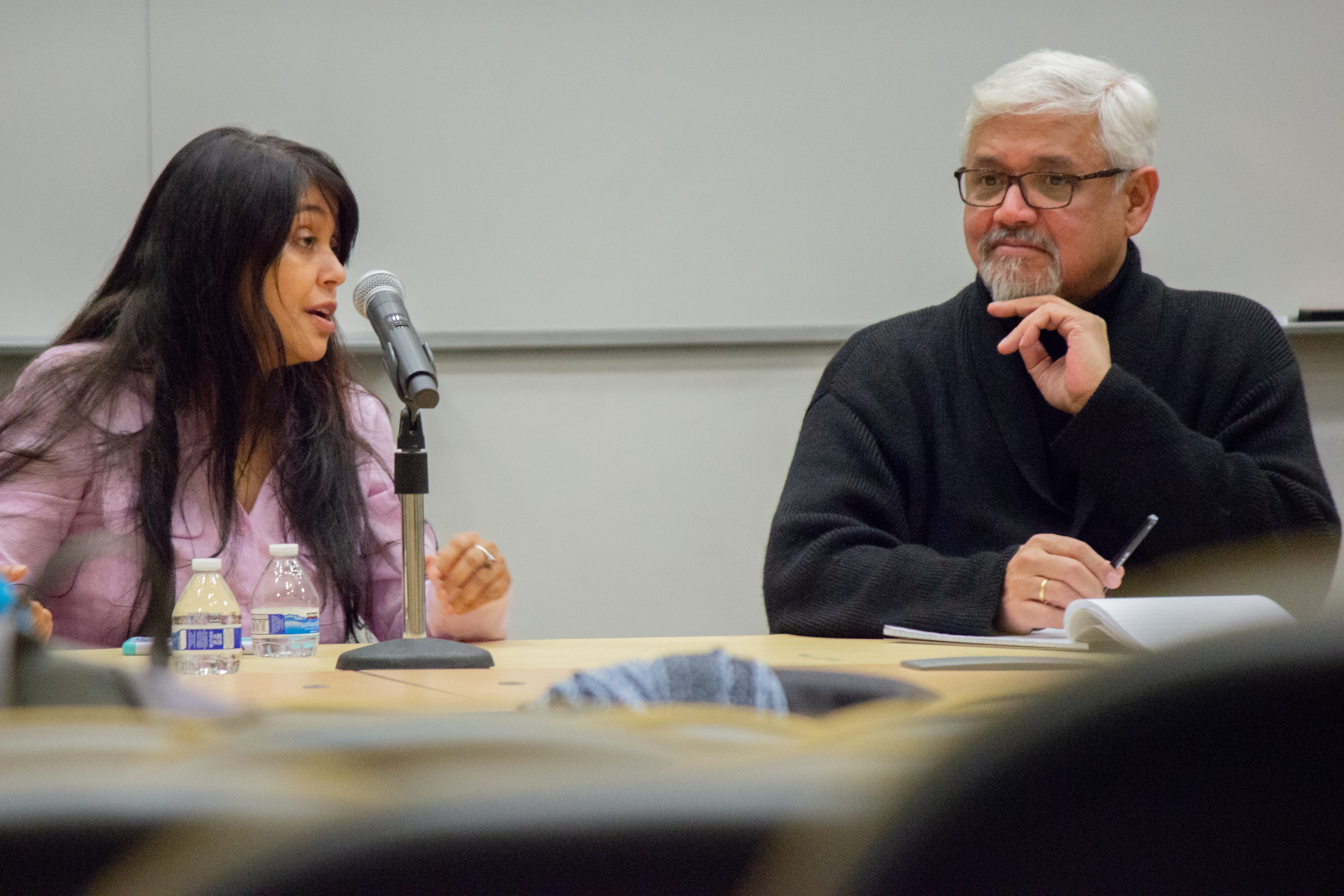
“The Anthropocene has made clear that the enlightenment way of viewing history as forward progress is wrong. Rather, history is a labyrinth– and we are inside of it.” Often the question at talks about climate change have to do with hope. What can we hope for? Is there any hope at all? According to Amitav Ghosh, hope isn’t necessarily the affect in need of cultivation. By illustrating a long history of colonialism and exploitation around the Indian Ocean, Ghosh highlights the ways in which the patterns we see arising from climate change began long before we conceived of them as such; long before the twentieth century, and long before we humans thought about our impact on the planet. This in turn leaves us with questions.
If history is a labyrinth, rather than a straight line with an end point, what must we do? Ghosh speaks of a sense of duty. As we are now faced with questions of when rather than if—when will climate change affect my region; when will climate change displace large groups of people–it is our duty to prepare to this displacement, this destruction. Ghosh points out that we are indeed being affected by climate change right now; the droughts and subsequent fires, the hurricanes, the floods. Flooded we are indeed with the changes our planet will continue to endure, and with the fear this brings with it.
One of the most compelling sweeps Ghosh makes is the sweep of commodities and trade over a near 500-year span. What do cloves have to do with carbon emissions? They are both intimately connected with the life of the commodity, and the human demand for them that carries us around the globe. The history of wealth and commodities is in many ways the history of climate change. Ghosh quotes Adam Smith’s famous words, that “wealth is desirable because it is desired by others” and asks us to consider the unthinkable–what if electricity in the Indian Countryside caused more harm than good? It is not difficult to understand his critiques of the military industrial complex and their exorbitant use of fossil fuels. It is much harder to consider what it might mean on a smaller, more personal scale for those whom electricity is still a crucial commodity, not to mention water and food security.
I will end with another quote; as a writer of eloquent fiction as well as erudite scholarship, it was hard not to write down Ghosh’s words. He said, “Talking about climate change is like talking about death—because no one wants to talk about it.” As I have been studying climate change documentary in my own scholarship, and the ways in which climate and natural resources have been represented onscreen historically, these words struck a chord. Climate change is not merely like death; it is death, on a mass scale. How can we cultivate an affect that can work us through? Is it hope? Is it duty? Is it resilience? Upon realizing that the consumption of another commodity, information, drives people around the world in search of a better life, and that this movement and consumption leads again into climate impact, what can be done? There is no one answer. However, perhaps the most crucial point to recall from his talk is that the teleology of improvement is part of the problem.
____________________
Joni Hayward
PhD Student in Digital, Cinema & Media Studies at UWM
Amitav Ghosh’s Lecture, “Embattled Earth: Commodities, Conflict and Climate Change in the Indian Ocean” took place on Thursday, November 2nd at the University of Wisconsin-Milwaukee’s Peck School of the Arts Music Recital Hall.